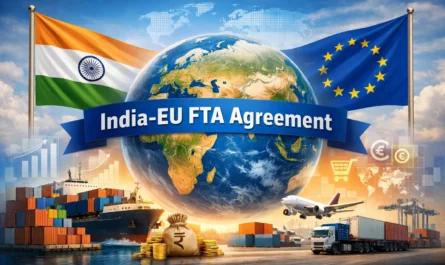Oil remains the lifeline of the global economy, driving industries, transport, trade, and power generation. Nations that control the largest oil reserves in the world hold significant influence not only in energy markets but also in geopolitics. These reserves are vital for ensuring energy security, attracting foreign investment, and maintaining global economic stability. Understanding where the biggest oil reserves in the world are located helps us predict future trends in supply, demand, and energy transition. The detailed list of Top 10 Countries with Largest Oil Reserves in the World 2025 has been shared below in the article.
What Are Oil Reserves?
Oil reserves refer to the estimated quantities of crude oil that can be extracted under current economic and technological conditions. They are divided into proven, probable, and possible reserves. Proven reserves are the most important, as they represent oil that can be confidently produced with today’s technology.
This concept is crucial because not all discovered oil is economically recoverable. For example, heavy crude in Venezuela’s Orinoco Belt requires special processing. Hence, proven reserves give a reliable picture of the largest crude oil reserves in the world.
Global Proven Oil Reserves in 2025
As of 2025, the world’s crude oil reserves are estimated at 1,765 billion barrels. This figure represents the proven reserves held across all countries. While new discoveries continue, the majority of reserves remain concentrated in the Middle East and the Americas.
Global Oil Reserves Snapshot
| Metric | Estimate (2025) |
|---|---|
| Total Global Proven Reserves | ~1,765 billion barrels |
| Top 10 Countries’ Share | Over 80% of global reserves |
| Region with Highest Reserves | Middle East |
| Largest Oil Producer (not reserves) | United States |
Top 10 Countries with Largest Oil Reserves in the World 2025
The table below highlights the Top 10 Countries with Largest Oil Reserves in the world based on proven reserves.
| Rank | Country | Proven Oil Reserves (Billion Barrels) | Share of World Total |
|---|---|---|---|
| 1 | Venezuela | 303 | ~18% |
| 2 | Saudi Arabia | 267 | ~16% |
| 3 | Canada | 168 | ~10% |
| 4 | Iran | 157 | ~9% |
| 5 | Iraq | 145 | ~8% |
| 6 | Russia | 107 | ~6% |
| 7 | Kuwait | 101 | ~6% |
| 8 | UAE | 98 | ~5% |
| 9 | United States | 69 | ~4% |
| 10 | Libya | 48 | ~3% |
1. Venezuela – The Biggest Oil Reserve in the World
Venezuela holds the biggest reserve of oil in the world, with over 303 billion barrels of proven reserves. The bulk of these resources are found in the Orinoco Belt, which contains vast deposits of heavy crude oil. Extracting and refining this oil is technically challenging and requires advanced infrastructure.
Despite its resource wealth, Venezuela faces political and economic hurdles that limit its production capacity. Nevertheless, its reserves position it as a critical player in the global energy landscape.
2. Saudi Arabia – Major Oil Superpower
Saudi Arabia has long been regarded as the backbone of global oil markets, with reserves of about 267 billion barrels. It possesses the biggest oil deposit in the world, the Ghawar Field, which alone has more recoverable oil than many countries combined.
As a founding member of OPEC, Saudi Arabia uses its reserves and production flexibility to stabilize or influence global oil prices. Its crude is relatively easy to extract, giving it an advantage over countries with heavier or unconventional oil.
3. Canada – Oil Sands Giant
Canada ranks third globally with around 168 billion barrels of proven reserves. Most of its oil lies in the Athabasca Oil Sands of Alberta, which require special techniques like steam-assisted recovery. While extraction is costly, advancements in technology have made Canadian oil increasingly competitive.
The country is also the top supplier of crude oil to the United States, making it an essential part of North America’s energy security. Its reserves ensure Canada remains a long-term energy partner for global markets.
4. Iran – Strategic Oil Power
Iran possesses about 157 billion barrels of oil, ranking fourth globally. Its reserves are spread across vast onshore and offshore fields, making the country one of the most resource-rich in the Middle East.
However, economic sanctions and political restrictions have limited Iran’s ability to maximize exports. If fully developed, its largest petroleum deposits in the world could make Iran one of the most dominant suppliers internationally.
5. Iraq – Rich in Crude Oil Deposits
Iraq holds 145 billion barrels of proven reserves, making oil the backbone of its economy. Fields like Rumaila and West Qurna are considered major oil reserves in the world, contributing heavily to Iraq’s revenues.
The country’s location in the Middle East enhances its strategic role in global supply chains. However, challenges such as political instability and infrastructure limitations affect its full potential.
6. Russia – Energy Giant
Russia has 107 billion barrels of oil reserves, the largest outside OPEC nations. It is one of the top three global oil producers and exporters, with vast reserves located in Siberia and the Arctic.
The nation plays a crucial role in energy supply, particularly for Europe and Asia. Russia’s ability to explore and exploit difficult terrains ensures it remains a dominant energy power even beyond conventional oil fields.
7. Kuwait – Compact but Oil-Rich
Kuwait has around 101.5 billion barrels of proven reserves. The Burgan Field alone accounts for a large share of its oil wealth. As one of the countries with the highest petroleum reserves in the world, Kuwait relies heavily on oil revenues while investing in downstream industries.
8.United Arab Emirates – Oil and Diversification
The UAE’s reserves stand at about 97.8 billion barrels, mostly concentrated in Abu Dhabi. While holding big oil reserves in the world, the UAE is also diversifying its economy into tourism, finance, and renewable energy, making it a unique example of balancing oil wealth with modernization.
9. United States – Shale Oil Leader
The United States has approximately 68.8 billion barrels in proven reserves. Much of its recent growth comes from shale oil, particularly in Texas and North Dakota. Although not the largest by reserves, the U.S. ranks among the major oil reserves in the world and remains the largest producer globally due to advanced extraction technology.
10. Libya – Africa’s Oil Giant
Libya possesses nearly 48.4 billion barrels, making it Africa’s largest holder of oil reserves. Most of its deposits lie in the Sirte Basin. Despite political challenges, Libya remains one of the countries with biggest oil reserves, giving it high strategic importance in global energy discussions.
Countries with Biggest Oil Reserves Outside the Middle East
While the Middle East dominates, several nations outside the region hold big oil reserves in the world. Venezuela leads in South America, while Canada and the United States dominate in North America. Russia remains the largest in Eurasia, and Brazil has emerged as a new oil hub with offshore discoveries.
These reserves provide diversification in global oil supply, ensuring that energy markets are not entirely dependent on Middle Eastern producers. This distribution also encourages investment in alternative production technologies.
Biggest Oil Deposit in the World
The Ghawar Oil Field in Saudi Arabia is the biggest petroleum reserve in the world, with an estimated 70 billion barrels of recoverable oil. This single field has played a central role in meeting global demand for decades. Other massive deposits include Venezuela’s Orinoco Belt and Canada’s Athabasca Oil Sands. Together, these reserves ensure a steady supply of crude oil, though their extraction methods and costs vary widely.
Importance of Oil Reserves
Oil reserves act as a financial and strategic asset for nations. They provide revenue through exports, stabilize domestic markets, and strengthen national security. For countries with the highest petroleum reserves in the world, oil often forms the backbone of their economy and government budgets.
These reserves also shape international relations. Countries with major oil reserves in the world often join organizations like OPEC to influence production quotas and global pricing. In addition, oil-rich nations attract massive foreign investments and partnerships in exploration and refining.
Future of Oil Reserves in the World
The future of oil reserves is closely tied to the global shift toward renewable energy and sustainability. Solar, wind, and electric vehicles are expected to reduce demand growth in the long term.
However, oil will continue to play a vital role for decades, especially in aviation, shipping, and petrochemicals. Even with energy transitions, the largest petroleum deposits in the world will remain strategically important well into the mid-21st century.
Also Read: World Trade Organization (WTO)
Why Oil Reserves Matter for Geopolitics
Oil reserves are not just an energy asset, they are a source of global influence and bargaining power. Countries with the highest petroleum reserves in the world often shape international politics through supply decisions.
Organizations like OPEC+ regulate output to stabilize prices, while sanctions on oil-rich nations like Iran or Venezuela demonstrate how reserves directly impact geopolitics and global power balances.
FAQs on Oil Reserves
1. Which country has the biggest oil reserve in the world?
Venezuela holds the largest proven oil reserves in the world, with around 303.8 billion barrels as of 2025.
2. How many years will global oil reserves last?
At current consumption rates, proven global reserves of about 1.76 trillion barrels could last more than 45–50 years. This may extend further with new discoveries and improved recovery technologies.
3. What is the difference between reserves and production?
Reserves are the estimated quantity of oil available for future extraction.
Production refers to the amount of oil actually being pumped and supplied to the market each year.
4. Which continent has the largest oil reserves?
The Middle East holds the highest petroleum reserves in the world, with countries like Saudi Arabia, Iran, Iraq, and Kuwait leading the list.
5. Are new oil reserves still being discovered?
Yes, recent finds in China (shale oil) and offshore Brazil highlight that new crude oil deposits in the world continue to emerge, although most large conventional reserves are already known.






